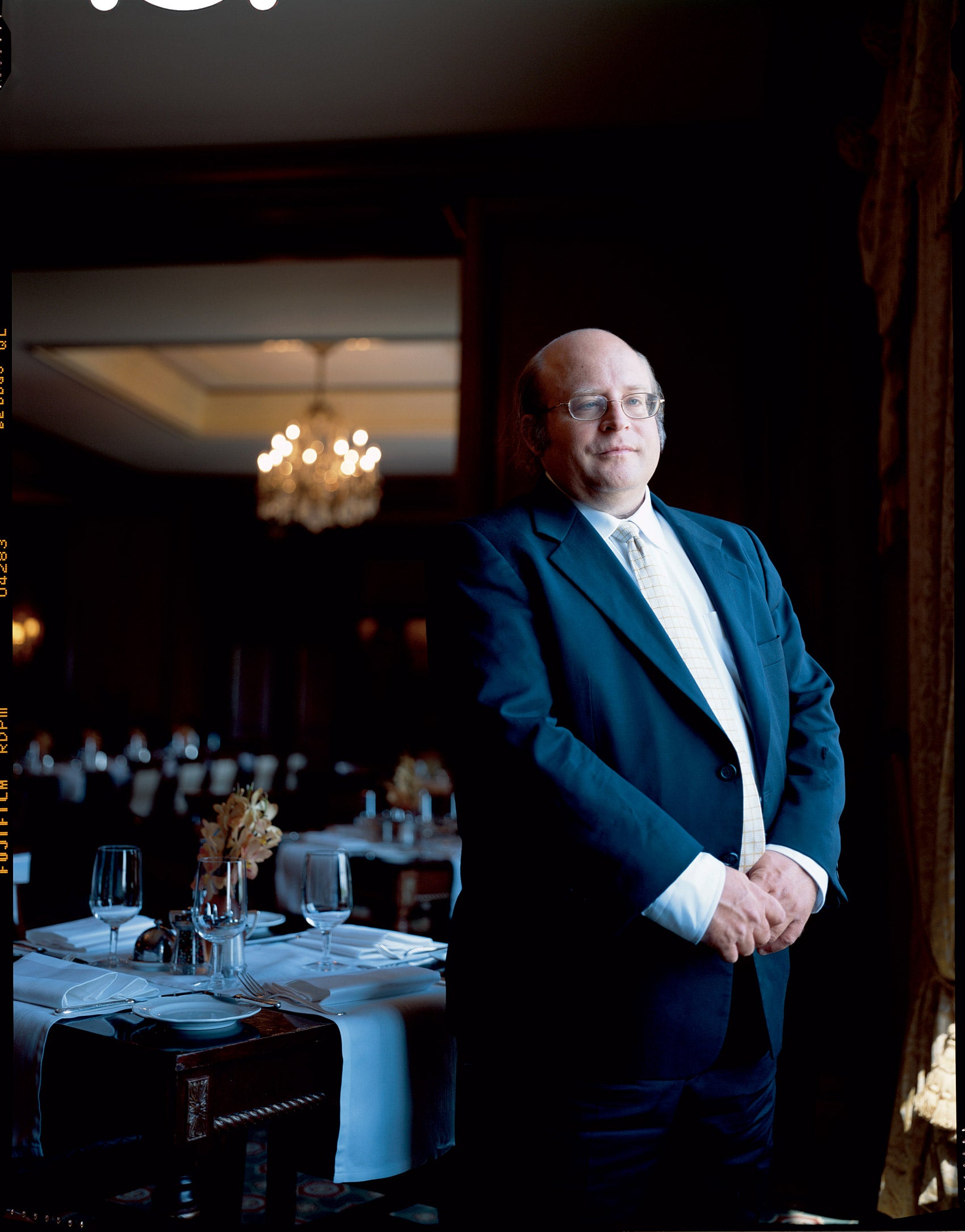Peter Ferrara ’79 finally has company on his crusade to privatize Social Security
Twenty-six years ago, Peter Ferrara ’79 picked a then obscure topic for his third-year paper: Social Security solvency.
Ferrara didn’t realize that his proposed solution–allowing Americans to divert part of their payroll taxes into private investment accounts–would become his professional obsession.
He dedicated the next quarter century to peddling private accounts tenaciously within conservative circles and then pushing the concept into the mainstream.
Today, Ferrara’s idea is at the center of a national debate over fixing the Social Security system. And even those who fiercely oppose creating private accounts give him credit for advancing the idea so far.
Ferrara’s conservative beliefs were well-settled long before he arrived at Harvard Law. He remembers being transfixed while watching television as Barry Goldwater stormed the 1964 Republican National Convention. He was 9 years old at the time.
So as he was wrapping up law school in 1979, Ferrara cast about for a third-year paper topic that would combine his interest in policy with his free-market values. The energy crisis was the big issue of the day, but he opted for Social Security, an issue few conservatives had written about.
The result was a 650-page paper that the fledgling Cato Institute published as its first hardcover book in 1980. It was hardly a best-seller, but Ferrara continued to hammer at the idea. He pitched it to every conservative think tank in Washington and evangelized during debates at even the most unlikely venues, including an AARP convention.
“If you do this right, you can structure a system that serves all the policy goals of the current system better than the current system does,” Ferrara said.
Except for a couple of breaks, including a stint as a Reagan White House policy aide, overhauling Social Security has been his life’s work.
Ferrara knew that sooner or later the issue would get the attention of the political establishment–although later, he knew, could mean decades. “But I’d already sunk my teeth in so deeply I couldn’t get out.”
The idea, he says, slowly gained traction through the late 1980s and 1990s among conservative Republicans, culminating in an endorsement by George W. Bush during the 2000 presidential campaign. “He put it in the middle of politics,” Ferrara said.
By inauguration day this year, it seemed as if Ferrara’s work might finally pay off. The president barnstormed the nation promoting private accounts. And yet by spring, Democratic counterattacks were taking their toll, and Republican senators appeared to be losing enthusiasm for private accounts.
One April morning, Ferrara bounded up the stairs of the law firm housing the offices of the Free Enterprise Fund, on Washington’s K Street, one of five conservative groups he works for these days.
“Something big and bad is happening,” he said breathlessly to Free Enterprise Fund staffers. A wire story that morning reported that Senate Republicans were considering shelving private accounts and instead focusing on reforms to protect the program’s solvency.
The rest of the day, Ferrara raced to finish a response for the National Review’s online edition in between shuttling his son to and from his high school baseball game.
“There’s an old saying that applies to politics: ‘Don’t throw the baby out with the bath water,'” Ferrara wrote. “This latest GOP capitulation to the Democrats would throw the baby out and keep the bath water.”
Ferrara concedes there is little chance of private accounts being enacted this year, the last shot, he says, before the next presidential election.
But he has hardly given up, already looking to potential Republican presidential candidates to carry the ball forward in 2008. He also hopes to broaden his focus to controlling costs of other entitlement programs such as Medicare and Medicaid, which, he says, threaten to boost federal spending as a percentage of the GDP to levels even higher than during World War II.
“I’m going to make a big crusade out of it,” Ferrara said, adding with a grin, “I’ve still got another 30 years.”
